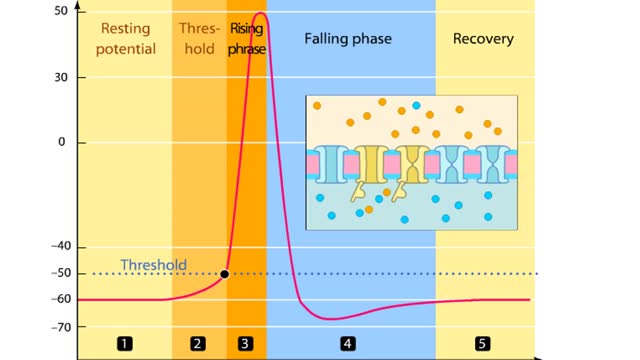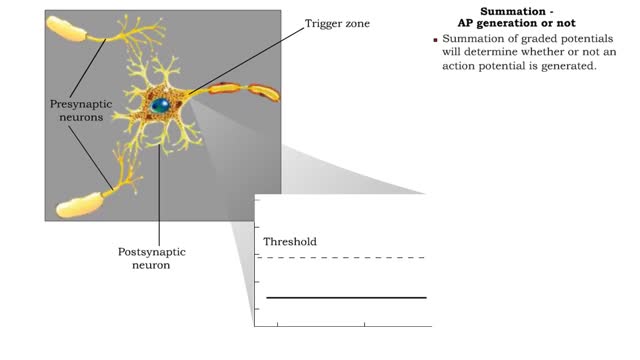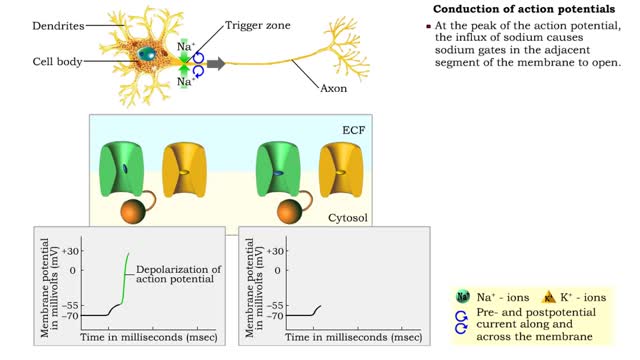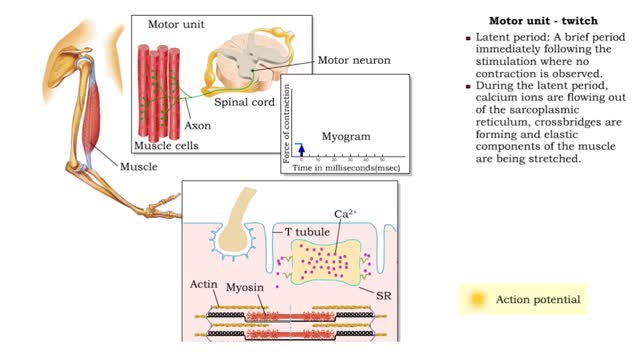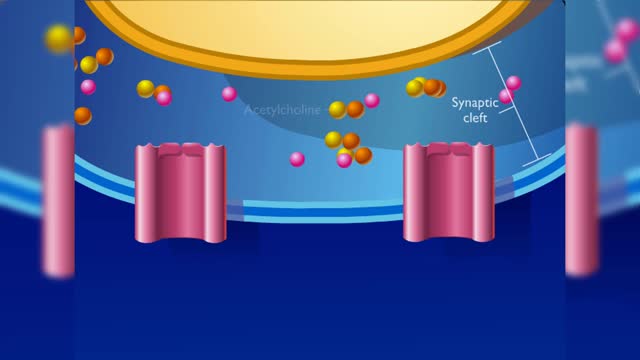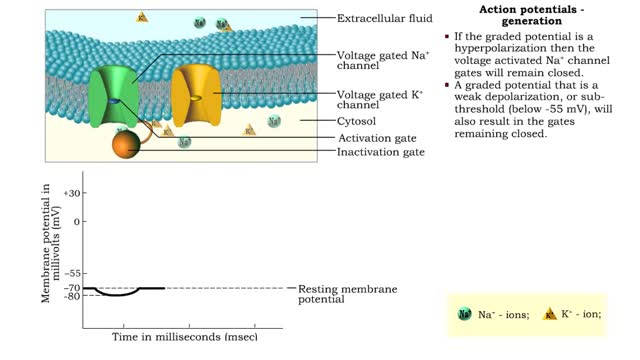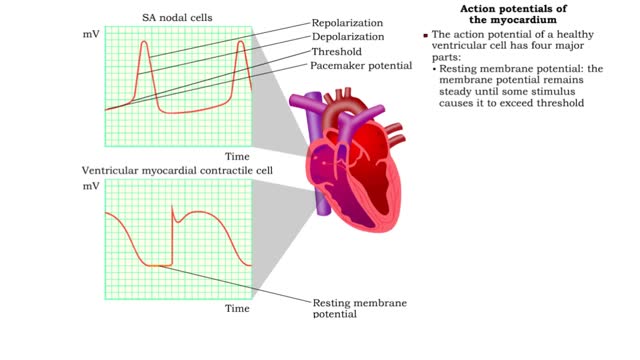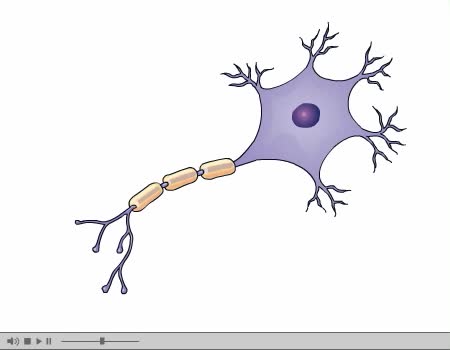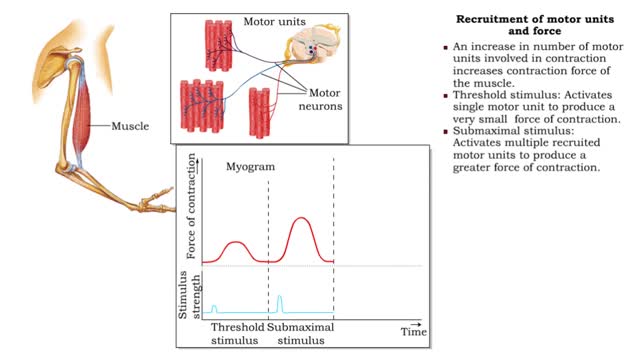Search Results
Results for: 'threshold'
Phases of an Action Potential - Resting Potential, Threshold, Rising, Falling, & Recovery Phases
By: HWC, Views: 11025
In this tutorial, we will review the phases of an action potential measured from a small area of a neuron's membrane. The action potential can be divided into five phases: the resting potential, threshold, the rising phase, the falling phase, and the recovery phase. When the neuron is at rest,...
Summation - defined, spatial, temporal & AP generation or not
By: HWC, Views: 11531
If several presynaptic end bulbs release their neurotransmitter at about the same time, the combined effect may generate a nerve impulse due to summation Summation may be spatial or temporal • A typical neuron may have thousands of synapses. A corresponding number of postsynaptic membrane ...
Conduction of action potentials
By: HWC, Views: 11778
• Action potentials must be rapidly conducted over long distances in order for the nervous system to communicate with other cells. • Propagation of an action potential uses processes similar to those that generate the potential at the trigger zone. • a When a graded potential reaches ...
Muscle Twitch and Muscle Tension - Motor unit size and force
By: HWC, Views: 11906
• A motor unit is a group of muscle cells controlled by a single neuron. • A stimulus of sufficient intensity will cause all the cells in the motor unit to contract. • A single contraction, caused by a single action potential, is called a muscle twitch. • Latent period: A brief per...
Action potentials - electrical characteristics and generation
By: HWC, Views: 11481
• An action potential is the nervous impulse or signal for long distance communication. Each action potential is generated at the cell's trigger zone. • Action potentials are considered an all-or-nothing phenomena because they are either generated or not. • The generation of an action...
Depolarization of the SA node, Action potentials of the myocardium & ANS effects
By: HWC, Views: 11507
• A typical contractile cell in the myocardium has a resting membrane potential. • The resting membrane potential of cells in the SA node is not fixed, and is known as the pacemaker potential. • The action potential of a healthy SA nodal cell has three parts: • Pacemaker potential: ...
Nerve Impulse Transmission Animation
By: Administrator, Views: 15087
How nerves transmit impulses. Stimulation of a nerve occurs at a receptor. Sensory receptors Specialized to specific types of stimulation such as heat, cold, light, pressure, or pain. React by initiating a chemical change or impulse. All-or-none principle Means that no transmission occ...
Frequency of stimulation and force (Recruitment of motor units and force)
By: HWC, Views: 11914
• Muscle tension depends on the frequency of stimulation. • Muscle twitch: First stimulus. • Wave summation: When a second stimulus excites a partially relaxed muscle, producing a stronger contraction. • Unfused tetanus: Successive stimulations at the same frequency, producing a se...
Advertisement



